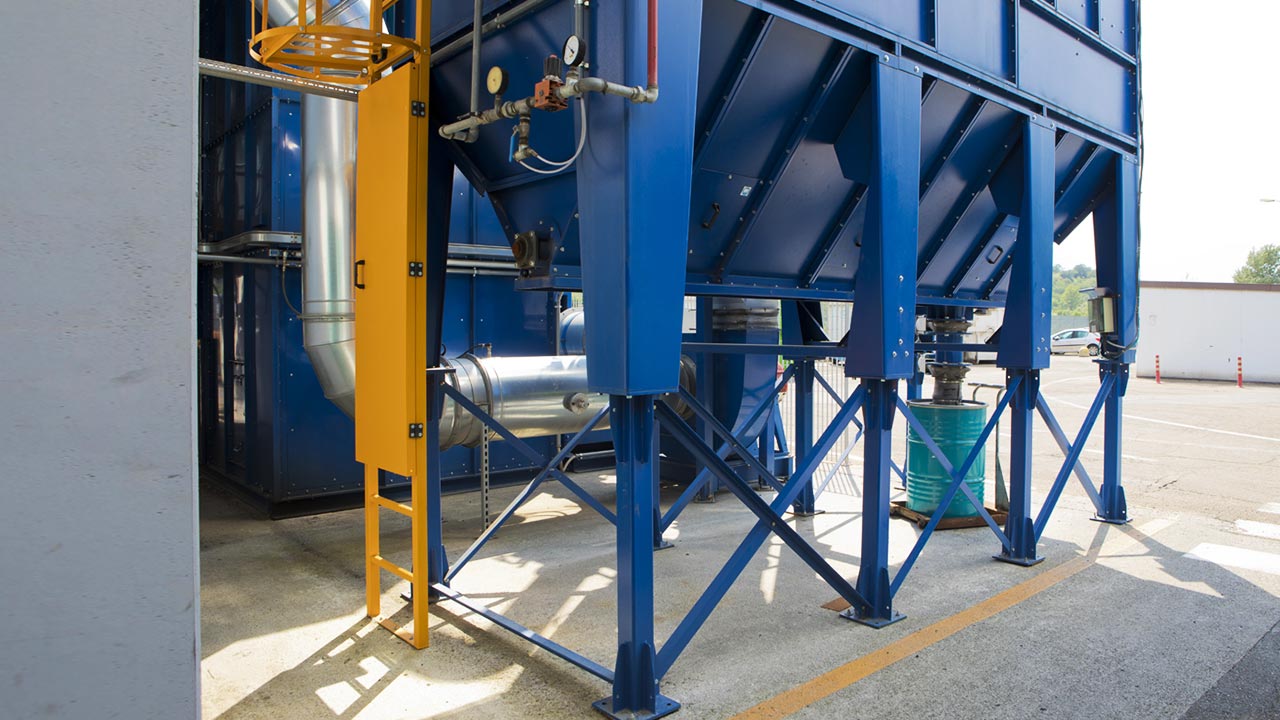
Industrial Dust Collectors
In the metal industry and other industries where high temperatures are used extensively, pollutants, particularly VOCs and particulate matter, are significant.
The process of removing dust contained in the air streams from the processing steps can be done by dry treatments.
In these cases, physical separation is put in place by means of specific cartridges or filter sleeves that retain the matter.
In the first stage, dusty air is fed in, below the filter bags, through the inlet inserted and connected to the hopper. The coarser dust precipitates, thus avoiding impacting subsequent filters.
In a second stage, the air flow passes through a more selective filter, where the separation of particulate matter, that is, substances with sizes ranging from a few nanometers to 100 µm, takes place. in this way, passing from the outside to the inside, it will deposit impurities and return the purified air.
In addition to the type and density of contaminants, contact time,air velocity and distribution , the temperature andrelative humidity of the flow are also considered in the design phase.

Key Features of Industrial Dust Collectors
The space-constrained facilities enable very high filtration levels of even more than 99 percent.
Industrial Dust Collectors, being modular, can act on different types of flow rates, and thus be adaptable to changing production conditions.
Cyclic and automated cleaning interventions make it possible to maintain the efficiency of the filters and collection systems, and the plant also has the ability to work on flammable dusts, according to the regulations provided by Atex certification.
In many production stages, the extraction of highly polluting technological vapors becomes necessary. To treat these streams, COIND offers a full range of water washers with or without "chemicals" and steam-regenerated adsorber filters for the recovery of valuable solvents. Regenerative or catalytic thermal destruction is proposed when the recovery of organic molecules is of little interest.
COIND also designs and builds treatment stations for air from composting and municipal solid waste treatment plants.

